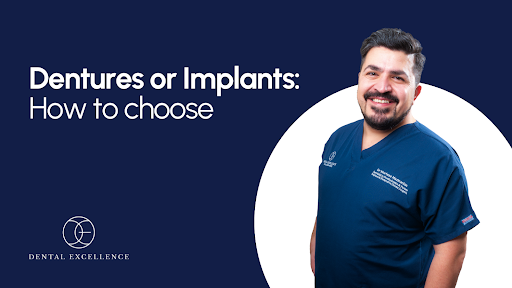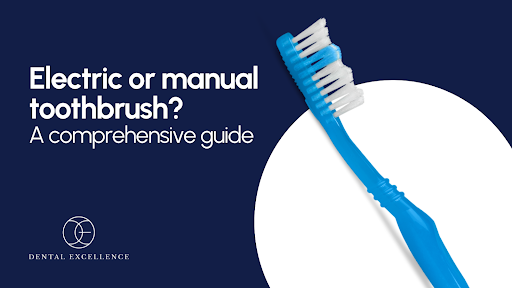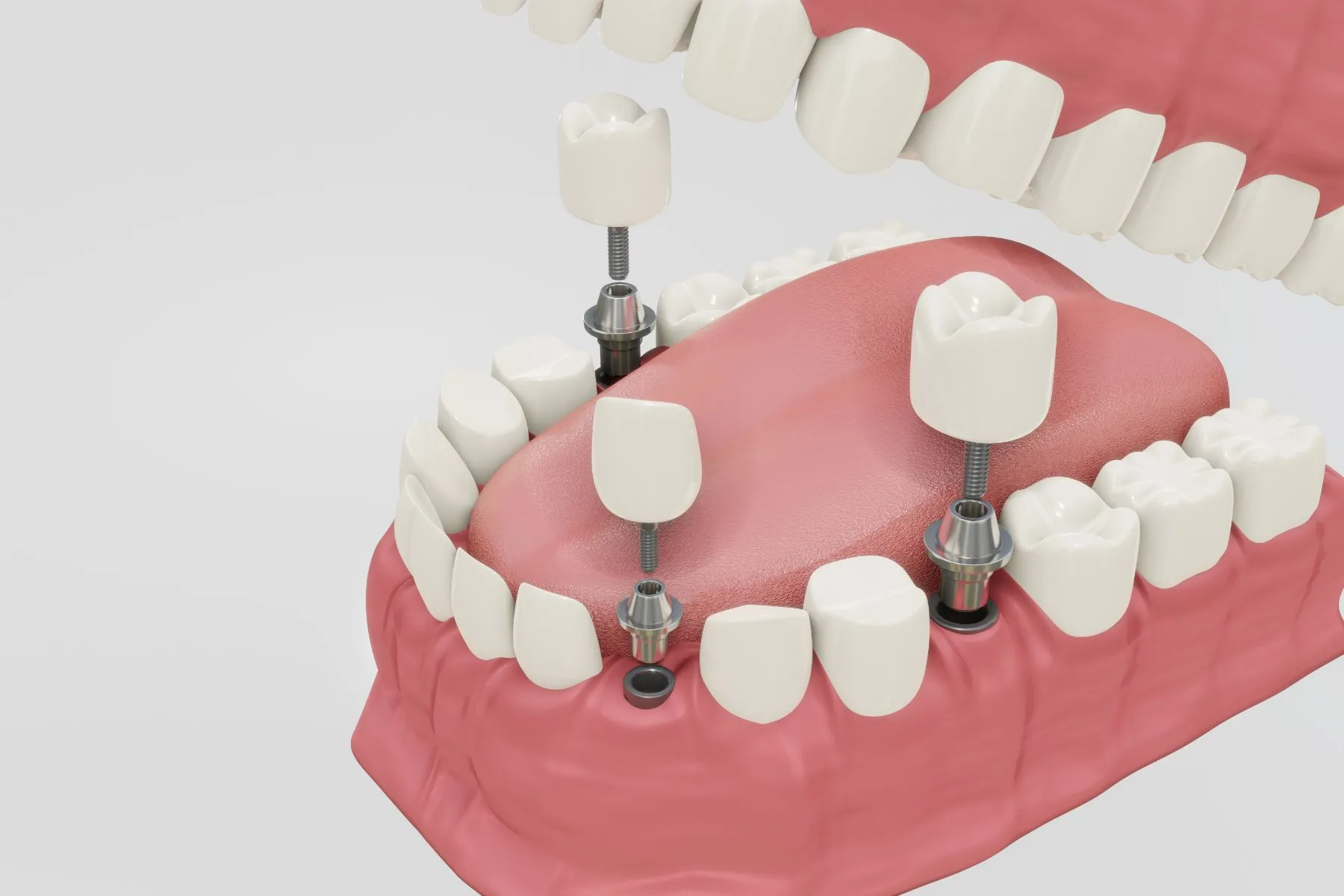Considering dental implants can be an exciting step towards reclaiming your smile and improving your quality of life. Whether you’ve lost a tooth due to decay, injury, or other reasons, dental implants offer a reliable solution that can restore not just your dental function but also your confidence. However, you might find yourself wondering if there’s an age limit or if specific health conditions could prevent you from getting implants. In this article, we will explore these questions and reassure you that it’s never truly too late to seek the smile you deserve.
Understanding dental implants
Dental implants consist of titanium posts that are surgically placed into your jawbone. They act as a sturdy foundation for replacement teeth, such as crowns or bridges. This process mimics the root of a natural tooth, providing a strong base that allows you to eat, speak, and smile with confidence once again.
Many people opt for dental implants because they offer benefits that extend beyond aesthetics. They feel and function like natural teeth, allowing you to enjoy your favorite foods without worry. Additionally, dental implants contribute positively to your overall oral health by preventing bone loss in the jaw, which can occur when teeth are missing.
Is there an age limit for dental implants?
You may be concerned that age could be a limiting factor when considering dental implants. It’s perfectly normal to have such worries, especially when faced with important health decisions. The good news is that age alone does not disqualify you from receiving implants. In fact, many older adults successfully undergo this procedure and enjoy the long-lasting benefits that dental implants provide, allowing them to smile, eat, and speak with confidence once again.
What truly matters in this journey is your overall health and the condition of your jawbone. Dental implants rely on a strong foundation, so it’s essential to ensure that your jawbone is healthy enough to support the implant. If you have experienced bone loss due to missing teeth or other dental issues, don’t be discouraged; there are options available to help rebuild your jawbone, such as bone grafting, which can create a stable base for your new implants.
For example, if you have chronic health conditions, such as uncontrolled diabetes or heart disease, it’s crucial to manage these conditions before undergoing surgery. These health factors can affect your body’s ability to heal properly, which is why your dentist will work closely with you to assess your medical history and any concerns you might have. By taking the time to discuss your health status and any medications you are currently taking, your dental team can create a tailored approach that ensures you are well-prepared for the procedure.
Your dentist will also take the opportunity to explain the implant process in detail, addressing any questions or anxieties you may have. They will provide guidance on how to maintain your overall health leading up to the surgery, including any necessary lifestyle adjustments or pre-operative care.
It’s essential to remember that dental implants are not just a cosmetic enhancement; they significantly improve your quality of life. With dental implants, you can enjoy the foods you love without worry, regain your ability to speak clearly, and, most importantly, restore your self-confidence. Many patients find that having a functional and beautiful smile contributes positively to their overall emotional well-being.
So, if you’ve been hesitating because you think age might hold you back, it’s time to reconsider. With the right care, support, and a focus on your health, dental implants could be the perfect solution for you. Embrace the possibility of a renewed smile and the chance to enjoy a fulfilling life, no matter your age. Your dental health journey can lead to wonderful outcomes, and we’re here to support you every step of the way.
Bone density and its importance
One of the most critical factors affecting the success of dental implants is the density and health of your jawbone. When a tooth is lost, the bone in that area may start to deteriorate due to the lack of stimulation. This can create challenges for implant placement, as there may not be sufficient bone to support the implant securely.
If you’ve experienced significant bone loss, don’t lose hope. It may be possible to restore your jawbone through a procedure called bone grafting. This involves taking bone from another part of your body or using synthetic bone material to build up the area where the implant will be placed. While this adds an extra step to the process, many patients successfully undergo bone grafting and go on to receive their implants with excellent results.

When is it too late?
Determining when it might be too late to get dental implants can be complex. Generally speaking, if you have been missing teeth for an extended period and have significant bone loss without restoration, it could complicate the situation. Additionally, if you have ongoing dental issues, such as active gum disease, it’s essential to address these concerns first before considering implants.
It’s also important to remember that the longer you wait to replace missing teeth, the more complicated the situation may become. Neighboring teeth may shift into the gap, leading to misalignment and additional dental challenges down the road.
Signs that it may be time to consider dental implants
If you’re feeling uncertain about whether it’s time to consider dental implants, it’s important to pay attention to some common signs that indicate you might benefit from this transformative procedure. Understanding these signs can help you make an informed decision about your dental health and overall well-being.
One significant indicator is having missing teeth or dealing with loose dentures that make eating and speaking uncomfortable. Missing teeth not only affect your ability to chew and enjoy your favorite foods but can also impact your speech. You might find yourself avoiding certain social situations or feeling self-conscious when you smile. Dental implants can provide a stable and permanent solution, allowing you to enjoy a complete smile and regain your confidence in both personal and professional settings.
Another sign to consider is your dissatisfaction with your smile. If you feel embarrassed or self-conscious about gaps in your teeth or the appearance of your current dentures, you’re not alone. Many individuals long to restore their smiles, as it plays a crucial role in self-esteem. Dental implants can significantly enhance the aesthetics of your smile, providing a natural look that blends seamlessly with your existing teeth. Imagine the joy of smiling freely and confidently again, without worrying about the appearance of your teeth.
You may also experience jaw pain or discomfort due to shifting teeth. When teeth are missing, the surrounding teeth may begin to shift into the gap, leading to misalignment. This shifting can cause bite issues and discomfort in your jaw, which may even lead to headaches or further complications. Dental implants serve as sturdy replacements that prevent shifting, helping maintain the proper alignment of your teeth and relieving any associated discomfort.
Lastly, if you desire a long-term solution that requires minimal maintenance, dental implants could be the ideal option for you. Unlike traditional dentures, which require regular adjustments and replacements, dental implants are designed to last for many years with proper care. They function much like natural teeth, allowing you to brush and floss as you normally would. This ease of maintenance can save you time, stress, and potential additional costs in the future.
If any of these signs resonate with you, it’s worth consulting with your dentist. They can provide a thorough evaluation of your dental health and help you understand if dental implants are the right choice for you. During your consultation, your dentist will take the time to discuss your concerns, answer any questions you may have, and explore the best treatment options tailored to your individual needs. Remember, taking this step toward improving your dental health is not just about aesthetics; it’s about enhancing your quality of life and overall well-being. Embrace the opportunity to regain your smile and confidence with dental implants.
Consultation with a dentist
Your journey towards dental implants begins with a consultation with your dentist. This is an essential step where they will assess your oral health, bone density, and medical history. Advanced imaging technology, such as X-rays and 3D scans, can offer a detailed view of your jawbone, helping to plan the implant placement accurately.
During this consultation, don’t hesitate to ask questions or express any concerns you might have. Your dentist is there to guide you, providing clarity and reassurance every step of the way. Understanding the process can help alleviate any fears you may have.

Common misconceptions about dental implants
Many misconceptions surround dental implants, which can lead to confusion and hesitation. Let’s address a few of these common myths.
1. Dental implants are only for older adults
This is not true. Age is not a primary factor when it comes to determining eligibility for dental implants. Many younger adults can benefit from implants, especially if they’ve lost teeth due to trauma or decay. It’s important to recognize that dental implants are a versatile solution for individuals of all ages.
For younger patients, tooth loss can occur for various reasons, including accidents, sports injuries, or dental issues like cavities or gum disease. In these situations, dental implants provide a robust solution that can restore both function and aesthetics. Implants help preserve the jawbone, which can begin to deteriorate after tooth loss, and they can also improve one’s ability to eat and speak confidently.
Moreover, dental implants are designed to look and feel like natural teeth, making them an excellent choice for younger adults who want to maintain a youthful appearance and a healthy smile. The emotional benefits of having a complete set of teeth can be significant, especially during formative years when self-esteem is crucial.
2. Implants are painful
The thought of surgery can be daunting, but thanks to advancements in pain management and sedation techniques, many patients find the procedure much more comfortable than they anticipated. In fact, most report minimal discomfort during and after the procedure.
When it comes to dental implants, the fear of pain is often one of the biggest concerns for potential patients. However, modern dentistry has made significant strides in ensuring that patients have a positive experience. Your comfort is our top priority, and we understand that every patient has unique needs and anxiety levels.
Before the procedure begins, your dentist will discuss your options for sedation and pain management. These can include local anesthesia, which numbs the specific area being treated, as well as sedation methods that help you feel relaxed and calm throughout the process. Many patients opt for sedation dentistry to reduce anxiety and ensure they are comfortable while the dentist performs the necessary work. This can make the entire experience much less stressful and even more pleasant.
During the surgery, you will likely feel pressure rather than pain, and most patients describe the sensation as manageable. Our skilled dental team takes great care to minimize discomfort, employing advanced techniques that reduce trauma to surrounding tissues. As a result, the surgical placement of the implant is often quicker and smoother than expected.
After the procedure, many patients are surprised to find that their recovery is not as painful as they had feared. While some swelling and mild discomfort are normal, these symptoms are usually well-managed with over-the-counter pain relief or prescribed medication if necessary. Following your dentist’s post-operative care instructions is essential to ensure a smooth healing process.
3. Dental implants require special maintenance
Caring for dental implants is similar to caring for your natural teeth. Regular brushing, flossing, and dental check-ups are crucial to maintaining your oral health.
4. Implants can fail due to age
While age-related health conditions can influence the success of implants, proper care and routine dental visits can significantly reduce these risks.
Frequently asked questions about dental implants
1. What is the success rate of dental implants?
Dental implants boast a high success rate, typically around 95% for lower jaw implants and slightly lower for upper jaw implants. Factors such as bone quality and overall health can impact individual success rates.
2. How long do dental implants last?
With good care, dental implants can last a lifetime. However, the crown may need to be replaced every 10 to 15 years.
3. Are there alternatives to dental implants?
Yes, alternatives include dentures and dental bridges. While these options can restore function, they may not provide the same stability and longevity as implants.
4. What can I expect during the implant procedure?
The procedure typically involves several steps: initial consultation, implant placement, healing period, and crown placement. Your dentist will guide you through each stage and keep you informed.
5. How can I prepare for the dental implant procedure?
Good oral hygiene is essential before the procedure. Follow any pre-surgical instructions from your dentist and discuss any concerns during your consultation.
Final thoughts about dental implants
It’s rarely too late to get dental implants, but the process might be more complex and require additional procedures like bone grafting. However, the longer you wait, the more likely it is that additional interventions will be needed to prepare the site for the implant.
If you are contemplating dental implants, remember that age is not the primary consideration. Focus instead on your overall health, bone density, and oral hygiene. By consulting with a qualified dentist and addressing any underlying issues, you can explore the possibility of dental implants as a long-term solution for your smile.
It’s never too late to take steps toward restoring your dental health and confidence. Many individuals have successfully transformed their smiles later in life, and you can too. With the right care, support, and a commitment to your oral health, you can enjoy the benefits of dental implants and embrace a future filled with smiles. Don’t hesitate to reach out for a consultation and discover how we can help you on your journey toward a brighter smile.






